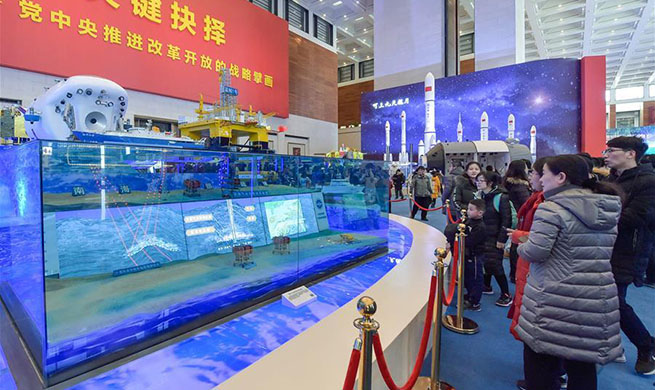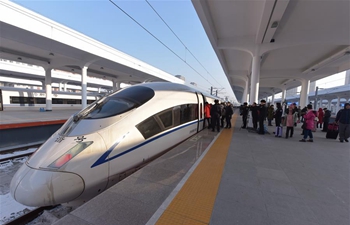by Mao Pengfei, Nguon Sovan
PHNOM PENH, Dec. 26 (Xinhua) -- Sixty years on, the Sino-Cambodian relations have been strong and deep-rooted in cooperation, Cambodian officials and scholars said.
Phay Siphan, spokesman for the country's Council of Ministers, said the two countries' friendship has withstood the test of regional and international vicissitudes and grown even stronger since they forged diplomatic ties in 1958.
"We always share both happy and difficult times together, and we have never abandoned each other in all circumstances," he told Xinhua in an interview.
Siphan said the ties and cooperation between the two countries are based on mutual trust, respect, help and support for mutual interests.
"Our friendship should be a good example of treating each other with mutual respect and equality among countries," he said.
China is one of Cambodia's largest trading partners and has built the road of nearly 3,000 km and seven bridges in Cambodia.
In the energy sector, Chinese enterprises have developed seven hydropower plants with a combined capacity of 1,328 megawatts.
"Chinese aid, investment, and tourists have greatly contributed to Cambodia's socio-economic development," Siphan said. "There are a lot of Chinese investors and tourists to Cambodia thanks to close ties between the governments and peoples of the two countries."
On the future of the Sino-Cambodian ties, the spokesman said there is no doubt that the relations will continue to grow stronger thanks to the commitment made by the leaders of the two countries and the bilateral cooperation under the framework of the Belt and Road Initiative.
FUTURE COOPERATION TO FURTHER DEEPEN TIES
Ek Tha, an advisor to the Ministry of Information, said the current Sino-Cambodian relations are flying high in all fronts.
"I believe that the two countries' relations and cooperation will continue to grow greater, stronger from time to time in all fields from trade to investment, foreign diplomacy and other sectors in the future," he told Xinhua.
"No one can break the ties between the two countries. We are iron friends," he said.
Tha said the two countries should look to greater cooperation in language education, saying that the more the two peoples can communicate in either Khmer or Chinese, the better people-to-people relations will be.
"This will benefit greater not only people-to-people relations, but also trade and investment communication," he said.
The advisor said China could help Cambodia train skilled workers through setting up schools or centers in various parts of Cambodia because this will help support the growing demand of Chinese investment in Cambodia.
He added that China could help Cambodia speed up in public investment, mainly infrastructures of electricity, roads and bridges, and medical centers, as well as in human resources development.
In tourism, he suggested that more Chinese speaking guides should be trained to meet the huge influx of Chinese tourists to the Southeast Asian country.
Joseph Matthews, a senior professor at the Beltei International University in Phnom Penh, said the Sino-Cambodian ties, established 60 years ago, are now "as solid as the Great Wall of China, unshakeable and stable."
He said the relationship between two countries are based on mutual respect, non-interference and co-existence.
"In coming years, I see relationship between the two countries further enhancing and reaching a new high," he said.
"In my personal view, Cambodia needs new investment in agriculture sector, streamlining its irrigation system, development of power and energy sectors and development of human capital," he said.
Meanwhile, Matthews said the Belt and Road Initiative has played and will continue to play a leading role in supporting the development of roads, bridges, railroads, airports and seaports in Cambodia.
Chheang Vannarith, vice chairman of the Cambodian Institute for Strategic Studies, said the government-to-government and business-to-business relations between the two countries are progressing well. More public participation and more platforms and dialogues to engage local stakeholders will better serve the Belt and Road Initiative projects.
"Both countries need to develop a comprehensive strategy to strengthen people-to-people ties," he told Xinhua.
Mey Kalyan, chairman of the state-run Royal University of Phnom Penh's board of trustees, said from a broad perspective, the relations between the two countries so far has been very good, and lead to development and prosperity of both countries.












